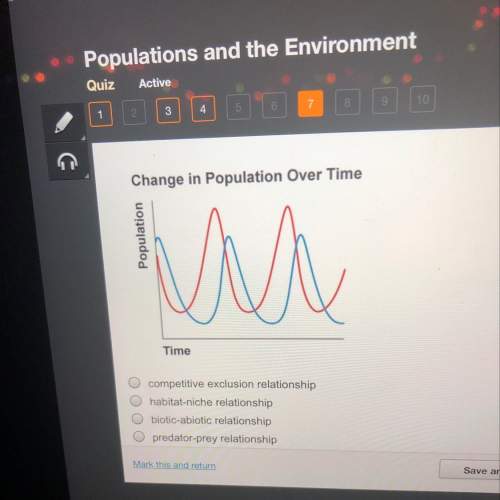
Biology, 07.12.2021 06:50 blessednish86orogbi
On the top of a high mountain, air pressure is significantly lower than at sea level, so there is less O2 in a given volume of air. Suppose a person at high altitude maintained the same rate and depth of breathing as he had at sea level. What would happen to the O2 levels in his blood? Explain your reasoning, using the vocabulary: breathing rate, oxygen, lungs, blood.

Answers: 1


Another question on Biology

Biology, 21.06.2019 22:20
Which best describes how the common cold spreads in the human body? a bacteria burst out of normal cells killing them b viruses replicate inside respiratory cells c bacteria inject dna into normal cells d viruses insert dna into bacteria
Answers: 1

Biology, 22.06.2019 06:50
The fascicles of the deltoid are ; the fascicles of the pectoralis parallel; bipennate fusiform; unipennate multipennate; triangular bipennate; fusiform
Answers: 3

Biology, 22.06.2019 10:50
What is it called when part of a cell membrane closes around a molecule to allow the molecule to enter the cell? a. passive transport b.diffusion c. endocytosis d. exocytosisc. endocytosis
Answers: 2

You know the right answer?
On the top of a high mountain, air pressure is significantly lower than at sea level, so there is le...
Questions

Mathematics, 10.05.2021 18:30

Mathematics, 10.05.2021 18:30

Chemistry, 10.05.2021 18:30

Mathematics, 10.05.2021 18:30




Mathematics, 10.05.2021 18:30




Mathematics, 10.05.2021 18:30

Mathematics, 10.05.2021 18:30



Social Studies, 10.05.2021 18:30

SAT, 10.05.2021 18:30


Mathematics, 10.05.2021 18:30




